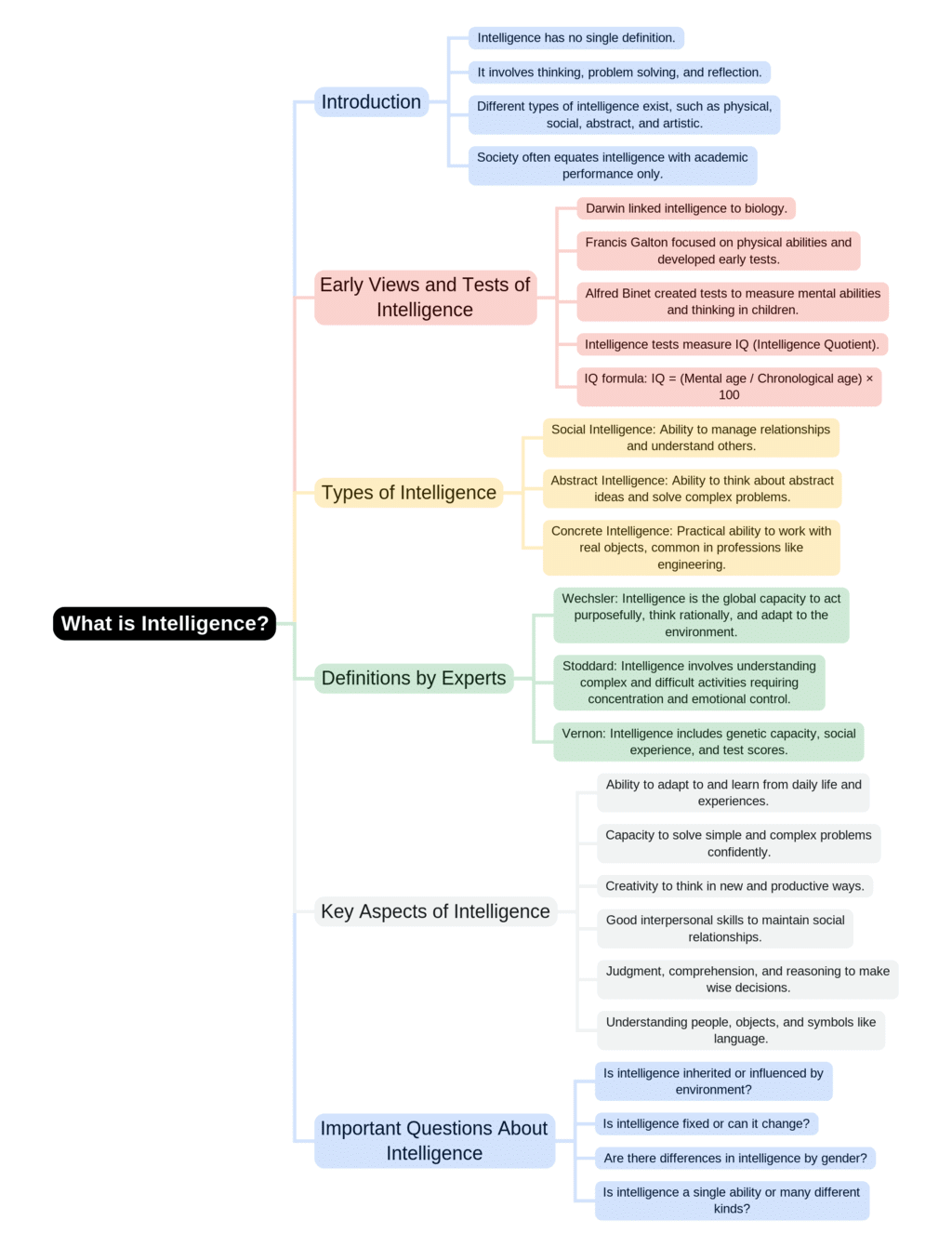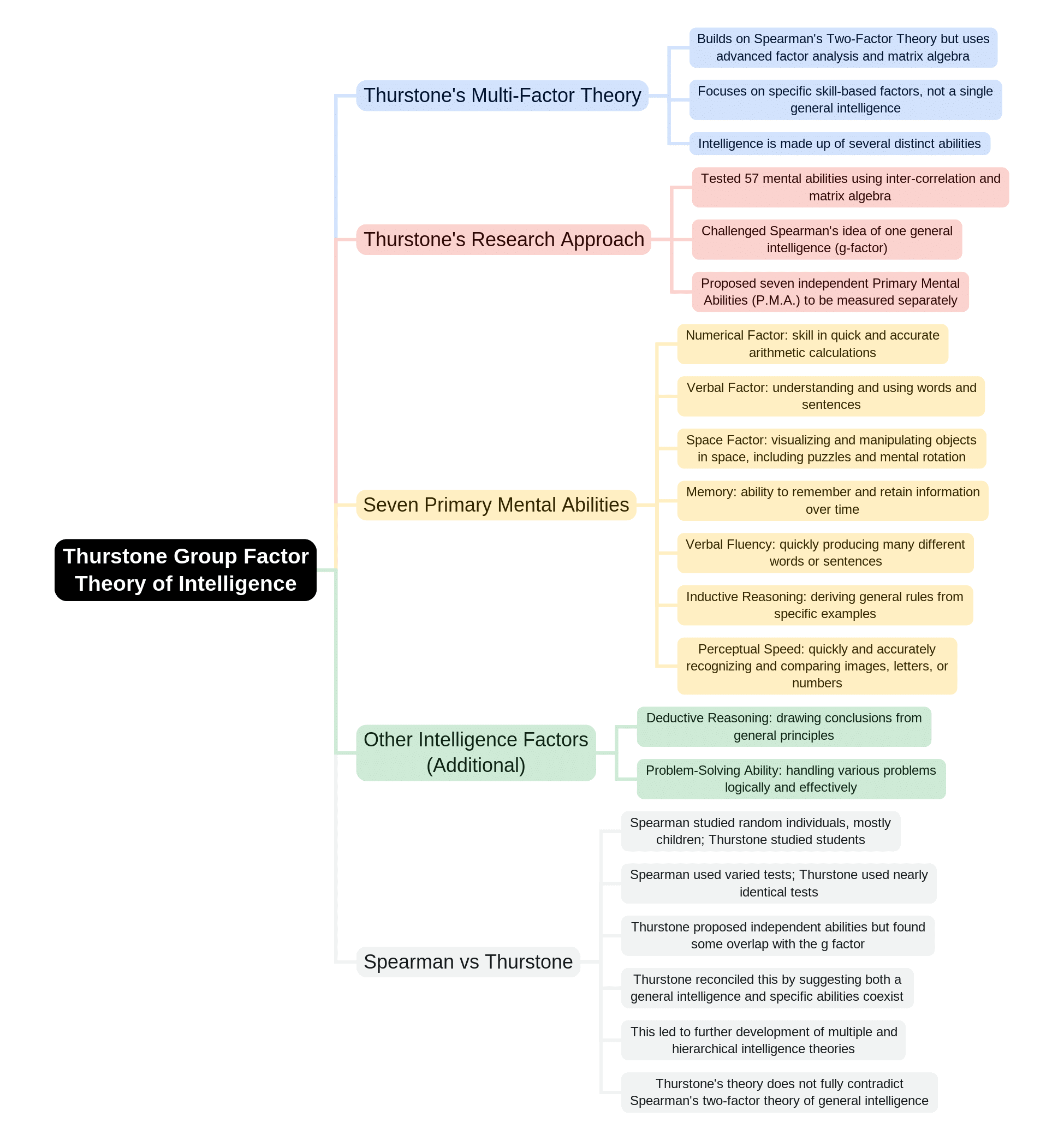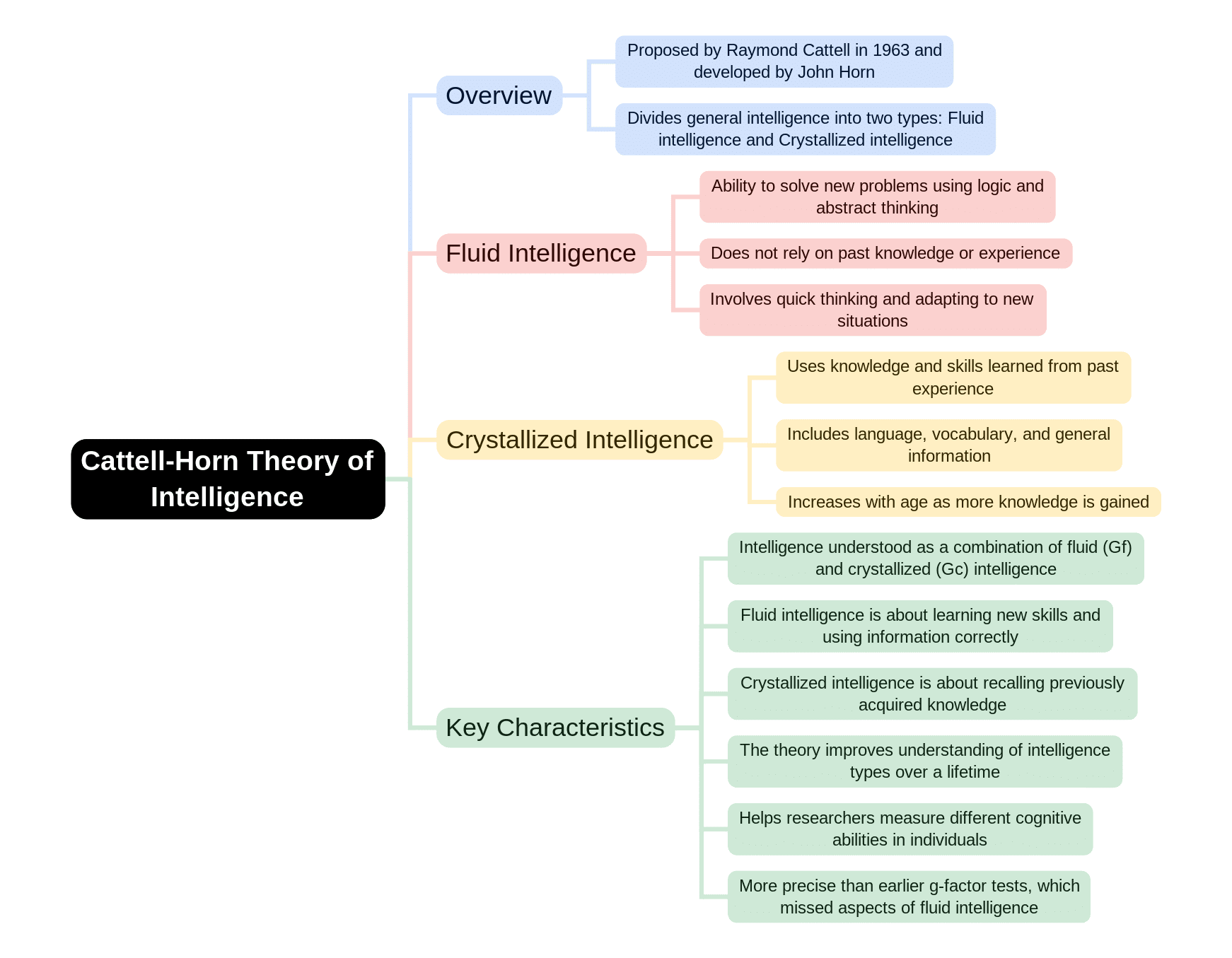CTET & State TET Exam > CTET & State TET Notes > Child Development and Pedagogy for CTET Preparation > Mind Map: Construct of Intelligence and Multi-Dimensional Intelligence
Mind Map: Construct of Intelligence and Multi-Dimensional Intelligence | Child Development and Pedagogy for CTET Preparation - CTET & State TET PDF Download



The document Mind Map: Construct of Intelligence and Multi-Dimensional Intelligence | Child Development and Pedagogy for CTET Preparation - CTET & State TET is a part of the CTET & State TET Course Child Development and Pedagogy for CTET Preparation.
All you need of CTET & State TET at this link: CTET & State TET
|
67 videos|154 docs|41 tests
|
FAQs on Mind Map: Construct of Intelligence and Multi-Dimensional Intelligence - Child Development and Pedagogy for CTET Preparation - CTET & State TET
| 1. What is the construct of intelligence, and how is it defined in psychological studies? |  |
Ans.The construct of intelligence refers to the mental capacity to learn, understand, and apply knowledge and skills. It encompasses various cognitive abilities, including reasoning, problem-solving, and adaptability. In psychological studies, intelligence is often measured through standardized tests that assess different cognitive skills, leading to various theories, such as Spearman's g factor theory, Gardner's multiple intelligences, and Sternberg's triarchic theory.
| 2. What are the key components of multiple intelligences theory proposed by Howard Gardner? |  |
Ans.Howard Gardner's multiple intelligences theory identifies eight distinct types of intelligences: linguistic, logical-mathematical, spatial, musical, bodily-kinesthetic, interpersonal, intrapersonal, and naturalistic. This theory suggests that individuals possess varying degrees of these intelligences, which influence their learning preferences and strengths, challenging the traditional view of intelligence as a single, quantifiable entity.
| 3. How can understanding multi-dimensional intelligence benefit educational practices? |  |
Ans.Understanding multi-dimensional intelligence can significantly enhance educational practices by promoting a more personalized learning environment. Educators can tailor their teaching strategies to accommodate different learning styles and intelligences, thereby fostering a more inclusive classroom. This approach encourages students to explore their strengths, leading to improved engagement, motivation, and academic success.
| 4. What are some criticisms of traditional intelligence testing? |  |
Ans.Traditional intelligence testing has faced criticism for its narrow focus on cognitive abilities, often overlooking emotional, social, and practical intelligences. Critics argue that these tests may not capture the full spectrum of human capabilities and can be biased against certain cultural or socioeconomic groups. Additionally, these tests often emphasize rote memorization and standardized responses, which may not reflect a person's true potential.
| 5. How does emotional intelligence fit into the broader concept of intelligence? |  |
Ans.Emotional intelligence is a key aspect of the broader concept of intelligence, encompassing the ability to recognize, understand, and manage one's own emotions and the emotions of others. It plays a critical role in interpersonal communication, decision-making, and conflict resolution. By integrating emotional intelligence into the understanding of intelligence, individuals can develop better social skills and enhance their overall effectiveness in both personal and professional settings.
Related Searches
















